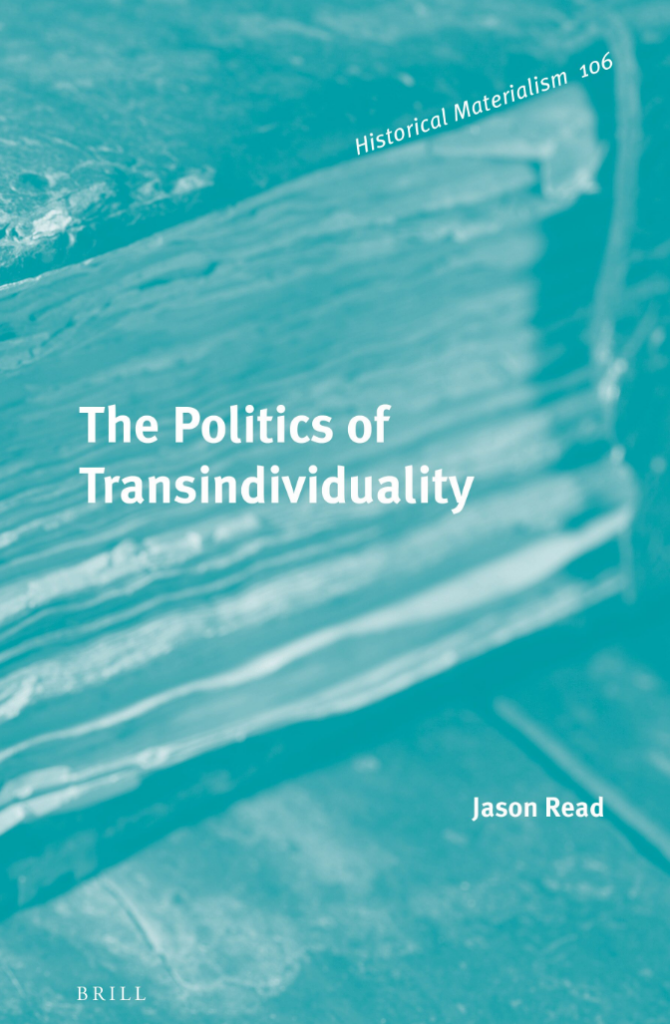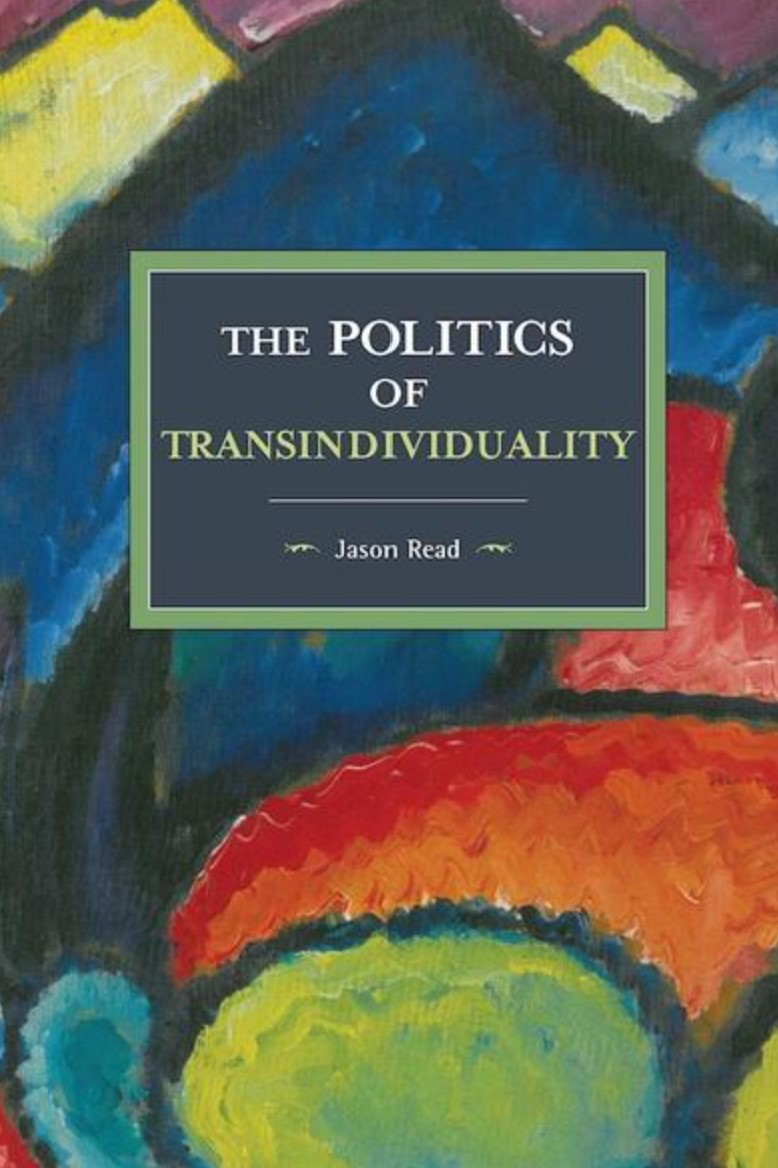Jason Read, University of Southern Maine
The Politics of Transindividuality re-examines social relations and subjectivity through the concept of transindividuality. Transindividuality is understood as the mutual constitution of individuality and collectivity, and as such it intersects with politics and economics, philosophical speculation and political practice. While the term transindividuality is drawn from the work of Gilbert Simondon, this book views it broadly, examining such canonical figures as Spinoza, Hegel, and Marx, as well as contemporary debates involving Etienne Balibar, Bernard Stiegler, and Paolo Virno. Through these intersecting aspects and interpretations of transindividuality the book proposes to examine anew the intersection of politics and economics through their mutual constitution of affects, imagination, and subjectivity.
Biographical note
Readership
Reviews
Etienne Balibar, author of The Philosophy of Marx.
Table of Contents
Transindividuality (A Concept for Marxism)
Transindividuality as Critique: Spinoza, Hegel, Marx
Transindividuality as Politics in the Thought of Étienne Balibar
‘The Obscure Zone’: Individuating Simondon
Affective Composition: Toward a Spinozist Critique of Political Economy
The Hidden Abode of Individuation: The Political Economy of Transindividuality in Stiegler and Virno
The Noopolitics of Capital: Imitation and Invention in Maurizio Lazzarato
Short-Circuits: The Politics and Economics of Transindividuality
Conclusion


